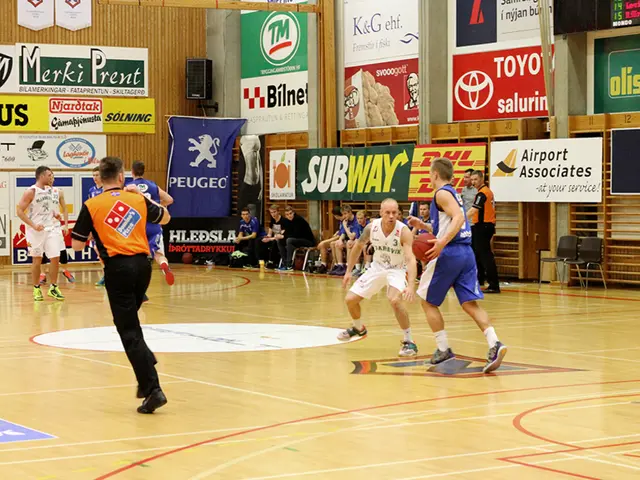Spinning the Wheel: Unveiling the thrilling history of Roulette 🎭 by Edwin 🌟
A Spin of Fortune's Wheel: Chances Take Centre Stage
Roulette, the iconic casino game, has a mesmerizing past that intertwines mathematics, culture, and strategy. From its humble beginnings in 17th-century France to the modern gaming floors, the tale of roulette showcases the evolving gambling landscape and an unrelenting pursuit of winning.
Origins of Roulette 🕰️
The game of roulette can trace its roots to the 17th century, often credited to the French mathematical genius, Blaise Pascal. During an attempt to create a perpetual motion machine, he unwittingly paved the way for the roulette wheel. However, it's possible that the game may have roots in earlier games like Roly Poly and Even Odd, which were popular in 17th-century England [1]. An intriguing theory also suggests that roulette was invented by monks seeking entertainment [2]. Early versions were adorned with devilish numbers that, mysteriously, added up to 666, earning the nickname “The Devil's Wheel.”
By the early 18th century, gambling dens in France started offering a game resembling modern roulette. The wheel featured numbers from 1 to 36, boasted a single zero marked in green, and provided the crucial edge necessary for casinos to turn a profit [3].
Double Trouble 🧱
As roulette spread across Europe and the United States in the mid-19th century, the single-zero layout was prevalent in European casinos, but the double-zero version gained popularity elsewhere [4]. First introduced in Germany, this variation was meant to boost casino profits [3]. Eventually, it made its way to the U.S., where it remains a defining characteristic of American roulette. The double zero altered probabilities, resulting in a house edge of 5.26 percent for American-style roulette – compared to the 2.7 percent edge of European-style roulette.
Chips & Bets 🃏
Modern casinos employ standardized stacks of 20 chips for roulette, simplifying gameplay and ensuring fairness. French innovations in roulette introduced intricate betting options like tiers du cylindre, voisins du zero, and les orphelins, which are based on specific wheel sections [5]. Additionally, neighbor bets were developed, allowing players to bet on a number and associated numbers. Interestingly, the three main bets – tiers du cylindre, voisins du zero, and les orphelins – combine to create 20 chips, the same as a typical stack [5]. This design provides a sense of balance, letting players cover every number on the wheel with one bet, whether intentional or serendipitous.
Modern Twists
- The gaming industry, with its continual evolution, has incorporated modern advancements into traditional casino games like roulette, such as touchscreens that digitize the classic wheel and betting options.
- A significant development in roulette's history took place in the 17th century, when Blaise Pascal's attempts to create a perpetual motion machine resulted in the invention of the roulette wheel, albeit unintentionally.
- Roulette, a casino-and-gambling mainstay, often faces statistical analysis to identify patterns and advantageous strategies, with Fibonacci sequences being one popular method employed by many players.
- Despite the numerous historical theories surrounding roulette's origins, it's generally agreed that the game first emerged in 17th-century France, making its way to gambling establishments and becoming a prevalent casino game.
- In the realm of casino games, roulette's appeal lies in its enchanting blend of statistics, mathematics, and casino-generated advantage, making it an intriguing choice for those captivated by both strategy and chance.









